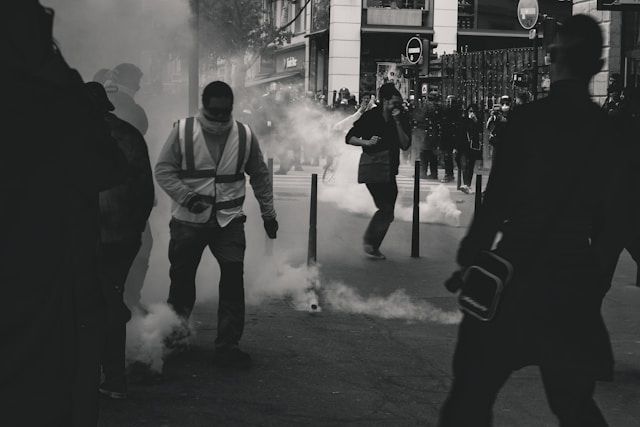Haiti’s escalating gang violence and state absence draws comparisons to Somalia’s darkest days, threatening regional stability
The United Nations‘ leading authority on Haitian human rights, William O’Neill, has sounded the alarm on the rapidly deteriorating situation in Haiti, drawing harrowing parallels to “Somalia in the worst of its times.” This warning comes in the wake of a violent gang uprising that has not only displaced tens of thousands but has also effectively isolated the capital, Port-au-Prince, from the rest of the world. The international airport has been shuttered since early March, and the Haitian capital is now a battleground for heavily armed gangs targeting essential public institutions and civilians alike.
O’Neill, with over three decades of experience in Haiti, expressed his shock at the current levels of violence and lawlessness engulfing the nation. “It’s apocalyptic,” he stated, underscoring the unprecedented severity and brutality of the attacks that have plunged the country into chaos. The UN has reported over 1,500 deaths in the first quarter of 2024 alone, a stark rise from the previous year’s total.
The expert lamented the virtual absence of the Haitian state in managing the crisis, describing the situation as a “Hobbesian world” where gangs, as the “fittest,” have taken control. This power vacuum has been exacerbated by the lack of a functioning government since the assassination of President Jovenel Moïse in 2021, leaving Haiti without elected officials and spiraling into lawlessness.
Port-au-Prince, with up to 90% under gang control, faces a dire humanitarian situation, with more than 53,000 people fleeing the violence. O’Neill warned of a potential exodus, reminiscent of the Somali crisis, as Haitians might risk perilous journeys to escape the violence. He fears the situation is “weeks at worst, months at best” from becoming a full-blown catastrophe that could spill over into neighboring regions, prompting a refugee crisis.
Despite the grim outlook, O’Neill believes the crisis is reversible with international intervention. He advocated for a multinational security mission, led by Kenya, to retake and secure critical infrastructure. Additionally, O’Neill urged the U.S. to disrupt the flow of firearms and ammunition to Haiti, emphasizing that cutting off the gangs’ supply of weapons from Florida could significantly diminish their power.
The situation in Haiti is a complex interplay of gang violence, political instability, and international dynamics. As the country teeters on the brink of collapse, the international community faces a crucial test in responding to this crisis. The call for action is clear: without immediate and concerted efforts, Haiti risks descending into an abyss from which recovery could be both difficult and distant.
